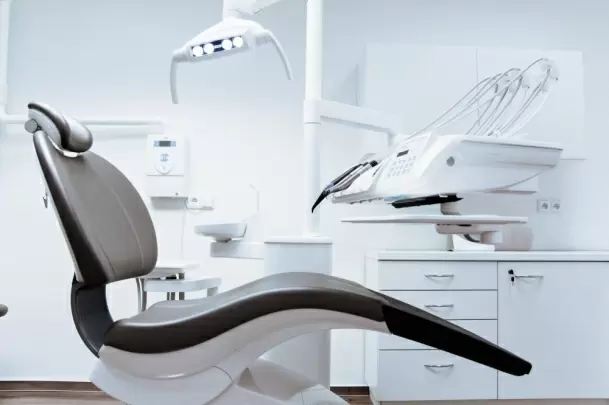7 important questions to ask your dental implant dentist
New Delhi
24-June-2021

Photo: IANS
Dental implants are the most widely talked about treatment modality in dentistry nowadays. Dr. Richa Vats, Geriatric Dentist and Implantologist shares important facts regarding implants.
A dental implant cannot harm the body adversely. The implant is completely submerged in the bone so you don't feel any foreign body sensation or irritation . Since it is made with titanium alloy it doesn't feel heavy either. Also it is safe to get an MRI or a CT scan done with implants, a radiologist might have trouble interpreting this scan because of the scattering artifacts.
While discomfort can vary between people, most individuals report getting their dental implant was much less uncomfortable than they anticipated it to be. During the surgical dental implant procedure, the dentist will give you an anesthetic, so you should feel minimal discomfort if any. If you follow the dentist's post-operative instructions and take the prescribed antibiotics, you should experience minimal discomfort. Your dentist will likely prescribe you pain medication as well. Postoperative instructions are almost similar to that of a dental extraction, which includes a soft diet, no smoking. Basically not disturbing the surgical site.
Very rarely does an individual's body reject an implant.The very few rejections are due to rare allergies to the titanium alloy that make up the implant.In this case your dentist will pull out the implant, allow the bone to heal and re-insert a new implant. Another reason why an implant could fail is if you don't take proper care of it after your surgery. Without excellent oral hygiene, natural teeth fail and fall out eventually. Dental implants are no different. When you take good care of your teeth and your implants, it will help prevent gum decay and structure failure later on.
Similar to any oral surgical procedure, there is a chance of infection, pain and inflammation. However, negative effects are rare and usually minor if they do occur. Also, if the dentist can't place the implant because of limited bone availability, then you may require a bone and gum grafting procedure, which could increase your treatment cost. To be a good candidate for implants, you need to have good oral and general health. You also need to have adequate bone in your jaw to support the dental implant, be free of periodontal disease and have healthy gum tissues.
An existing denture wearer (it might be possible for your dentist to place the implants beneath existing dentures to help stabilize and support them. However, the dentist can only do this if your existing dentures are in excellent condition). Dental implants can help provide support and retention for a removable implant overdenture. Implants help ensure that the full or partial denture doesn't move and decreases the need for denture glue or adhesives. Don't smoke or be willing to quit. Absolute contraindications to implant rehabilitation include recent myocardial infarction and cerebrovascular accident, and valvular prosthesis surgery. Patients on hormonal therapy like uncontrolled diabetes. Immunosuppression, bleeding issues, osteoporosis, active treatment of malignancy, drug abuse, psychiatric illness, as well as intravenous bisphosphonate use. Relative contraindications will include tobacco addiction, inadequate bone support which cannot be augmented, controlled metabolic disorders. Patients with poor oral hygiene and non compliant patients.
Watch This TWL Video
The average implant process occurs in multiple steps. You may require more than one healing stage. So, there's a varied healing period, depending on your health, the number of teeth to be replaced, and other factors. However, the healing process generally takes anywhere from 12 to 16 weeks.Placing teeth right after the surgery isn't uncommon but can't be done for everyone. A lot of factors are to be considered before making this decision. Also this is to be pre-planned before the surgery.
Dental implants can last a lifetime if you take care of them properly by regularly brushing, flossing and following your dentist's recommendations. While no one can guarantee the lifetime success of an implant, you can be provided with suggestions and guidelines on how to take good care of your teeth. The guidelines are based on your genetic history, proper hygiene procedures, and your nutritional habits.Also you can expect some bone loss around your implant over a few years which may or may not affect the stability of your implant. So basically they are a permanent solution for your Missing teeth.-IANS
More Headlines
Row Over Aurangzeb's Tomb: Nagpur Flare-Up Occurred After Hours Of Mayhem In Mahal
Curfew Imposed in Nagpur After Clashes, 50 Detained
Manglam Group Invests ₹1,000 Crore in Hospitality Expansion Across Rajasthan
Chai Kings Secures ₹24 Crore Series A Funding from AVT for Expansion
Amritsar Temple Blast: One Suspect Shot Dead, Another on the Run
Row Over Aurangzeb's Tomb: Nagpur Flare-Up Occurred After Hours Of Mayhem In Mahal
Curfew Imposed in Nagpur After Clashes, 50 Detained
Manglam Group Invests ₹1,000 Crore in Hospitality Expansion Across Rajasthan
Chai Kings Secures ₹24 Crore Series A Funding from AVT for Expansion
Amritsar Temple Blast: One Suspect Shot Dead, Another on the Run










